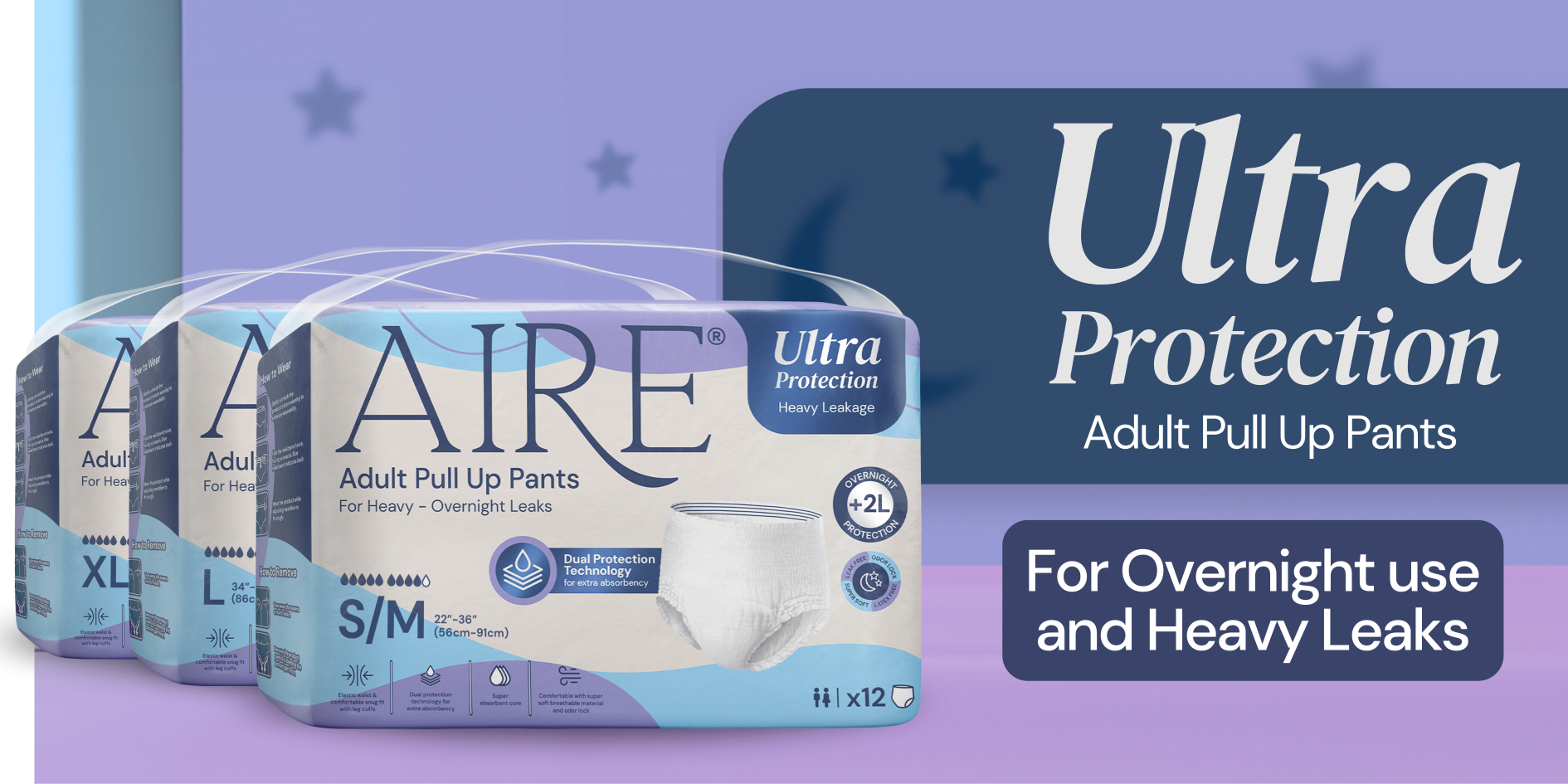Growing older is a part of life and is inescapable, however with it comes new challenges we perhaps didn’t consider previously. Stress incontinence, however, is a condition that significantly impacts the lives of many older women, with 75% of women over the age of 65 experiencing some form of it. Stress incontinence is the involuntary leakage of urine during any activity that puts pressure on the bladder, which is often inconvenient and embarrassing. It usually takes form of urine leaks while laughing, coughing or sneezing. While this condition affects such a large percentage of women, it remains hush-hush, when it shouldn’t be- especially since there are easy and effective ways to manage these sudden urine leaks! In this article we will break down simple and effective ways that help manage and reduce its symptoms so that you can get your life back in control!
The first step to battling any condition is to learn more about it. Stress incontinence occurs when the muscles and tissues that support the bladder become weakened or damaged. This can happen due to a variety of reasons, including childbirth, aging, menopause, previous surgeries, obesity, and chronic coughing. When these muscles are unable to properly support the bladder, any physical activity that increases abdominal pressure can cause urine to leak, albeit usually a small amount. Some common examples of when urine leakage can occur is usually due to physical exertions or coughing and sneezing.
There are several risk factors that could cause stress incontinence are child birth, menopause, nerve injuries to the pelvis or lower back, obesity, pelvic surgery, chronic coughing and even diabetes.
The most surefire way to know if you have the symptoms of stress incontinence is when you experience urine leakage whenever you apply pressure to your bladder. To truly know if you have the condition, it is often best to visit your nearest healthcare provider to perform a physical examination and to keep a bladder diary that tracks your fluid intake, bathroom use and urine leakage to help with the diagnosis.
As unthreatening as the condition is, it can cause major disruptions to our daily lives. Stress incontinence can cause emotional distress, leading to anxiety, embarrassment, and social withdrawal. Due to this, many women limit their activities to avoid potential leakage incidents, which can decrease mobility and lead to a more sedentary lifestyle, further weakening the pelvic floor muscles and contributing to other health issues like cardiovascular disease.
So, how do we fight this life disrupting condition? Lucky for you, we have a couple of ways that could assist you in this battle!
One of the most effective ways to manage stress incontinence is by performing Pelvic Floor Muscle Training (PFMT), commonly known as Kegel exercises, which can be done easily and discreetly, even while sitting. Kegel exercises are essential to fighting stress incontinence that will not only help strengthen your pelvic muscles and bladder control, but also improves your overall health; Two birds with one stone! To ensure that stress incontinence does not take over again, make sure to perform Kegel exercises daily - at least once a day. With enough effort and consistent exercising, stress incontinence will no longer be a stressor in your daily lives ever again!
To learn more about how to conduct a Kegel exercise, click our link here!
Alongside Kegel exercises, lifestyle changes can be made to aid in your fight against stress incontinence. Some of these ways are:
- Managing your weight to reduce pressure on your abdominal region.
- Managing fluids and diet such as limiting caffeine and alcohol intake which can cause bladder irritation.
- Staying hydrated and eating high-fiber foods to prevent constipations, which makes incontinence worse.
- Stop smoking or using tobacco products
- Using the restroom at set times; Bladder training
While making changes to your lifestyles and conducting Kegel exercises regularly can help with stress incontinence, sometimes these steps are just not enough. For that, we are recommending a few products that will help with stress incontinence.
Pads are an excellent way to help absorb urine leakage while you go about your daily lives. One of the least intrusive and more convenient options out there, pads are a great product that will be your first step into taking back control! However, it is important to note that not just any pads are suitable for incontinence. Menstrual pads are made specifically for the absorption of menstrual blood, which flows slowly and in smaller volumes. Incontinence pads are, of course, made specifically for incontinence, which has a higher absorbency capacity than menstrual pads.
Panty Liners as well are also a great product that would help fight against incontinence! For those who feel that incontinence pads may not be the best choice for them, incontinence panty liners offer a much more discreet yet effective option! While incontinence pads are mostly designed for medium to heavy flow, panty liners are specifically designed for those with light incontinence and are a little cheaper than pads. As usual, do note to specifically go for incontinence panty liners as they absorb much better than menstrual ones.
AIRE too comes with a line of products that would help tremendously with incontinence! With a catalog of adult diapers that range from XL to S, these adult diapers are one of the most comfortable and convenient adult diapers out there. They also have a high absorbency rate of more than 1 liter which makes AIRE adult diapers one of the best out there. Though mainly appropriate for those with moderate to heavy leaks which is unusual for stress incontinence, they can also be used for additional security.
Stress incontinence does not have to dictate your life. Many women experience incontinence be it light or heavy. However, understanding the condition and knowing the available management strategies can help you to take control of their symptoms. Incorporating simple exercises like Kegels into daily routines, making mindful lifestyle changes, and knowing the various products available can help manage stress incontinence effectively. By taking proactive steps, you can not only improve your quality of life but take the first steps to getting your life back to the way it was.
References
https://my.clevelandclinic.org/health/diseases/22262-stress-incontinence



